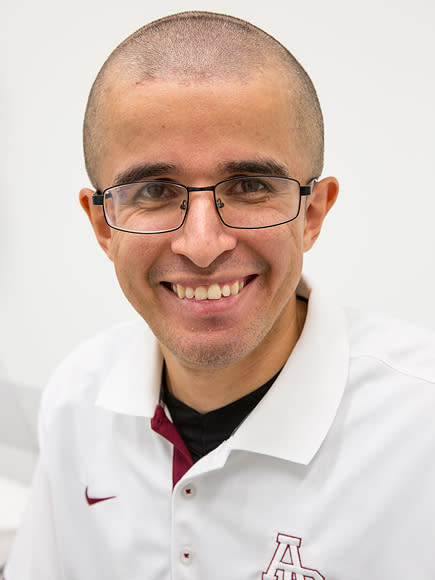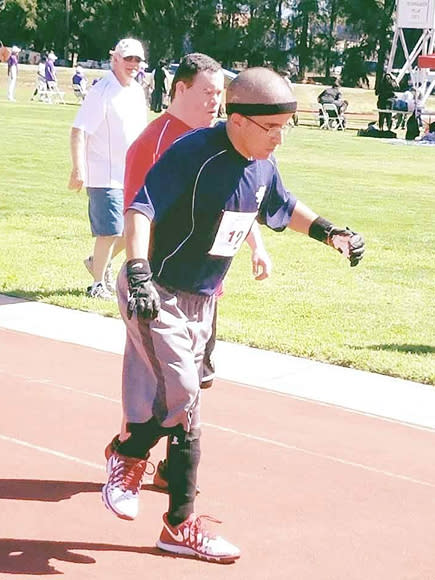Special Olympics Athlete Gives Surgeon His Gold Medal After Life-Saving Brain Surgery
After undergoing 26 surgeries before the age of 8, Edward Garcia never could have imagined he'd one day be begging several surgeons to operate on his brain.
But that's exactly the position the young man who from Asuza, California, found himself in in 2011 when he was in excruciating pain and losing his vision due to a problem deep within his brain that no medical professional or machine could detect.
"I felt my body kind of shutting down," Garcia, now 31 and a college student studying psychology, tells PEOPLE.
Garcia was diagnosed with hydrocephalus, a rare condition in which cerebrospinal fluid builds up in the cavities deep within the brain, at 11 months old. Ever since then, his condition has been managed thanks to a surgically implanted drainage system called a shunt.

In 2011, Garcia began waking up every morning with headaches, chest pain and nausea and experiencing progressive vision loss. He knew his shunt had stopped working properly – but every doctor he saw disagreed.
"Every doctor said my CT scans looked fine," Garcia says, "but I knew this wasn't how I was supposed to be feeling."
For months, Garcia saw a series of specialists who couldn't find any problems, but his symptoms continued to get worse. The 11-time Special Olympics athlete knew that if he didn't get the treatment he needed, his condition could cause severe disability – or even death.

Eventually, Garcia ended up in the emergency room at Ronald Reagan UCLA Medical Center where he begged the neurosurgeons on duty to open up his brain.
"I remember there were five doctors in my room and I told them, 'If you open me up you will find that something is wrong,' " he recalls.
One doctor left the room, another, Dr. Isaac Yang, examined the back of Garcia's head. He couldn't see any problem, but when he touched Garcia's neck, it hurt.
So, Dr. Yang chose to take Garcia's word for it, and in the operating room, he quickly found that Garcia had been right all along. No CT scan had detected that Garcia's shunt was broken below the region captured by scans.
"The technology wasn't good enough to see what Edward could feel," Dr. Yang explains.
Dr. Yang repaired the shunt and Garcia woke up after surgery finally free from the crushing pressure he'd been experiencing for months.
"The first thing Dr. Yang told me after the surgery was, 'You'll never hear a doctor say this, but I was wrong and you were right,' " Garcia says.

Those were words Garcia never expected to hear.
"As a disabled person, people talk down to me and that's what most of the doctors I saw were doing," Garcia says. "Dr. Yang could've easily been like the other doctors and said, 'You're fine' and I could have been sent home again and I could have died."
Within months, Garcia was back to training for the Special Olympics – he's competed in the event for the past 11 years as as a long-distance walker – and he feels back to his normal self.
• Need a little inspiration? Click here to subscribe to the Daily Smile Newsletter for uplifting, feel-good stories that brighten up your inbox.
He still sees Dr. Yang to this day, and at his last appointment, he presented his doctor with a gold medal he won at the Special Olympics state finals this month.
"It was a joy to give him the medal," Garcia says. "I told him to look at it when he's at a low point and know that he helped and believed in me when no one else would."

